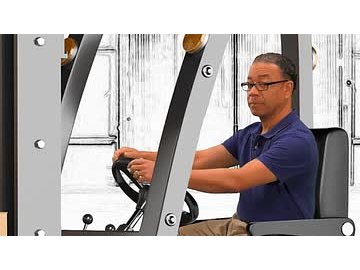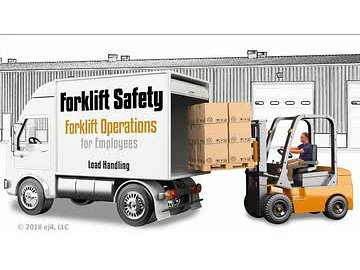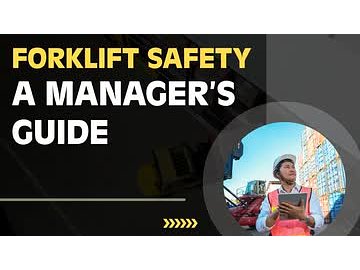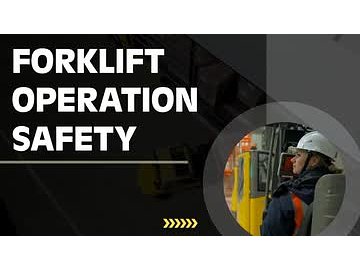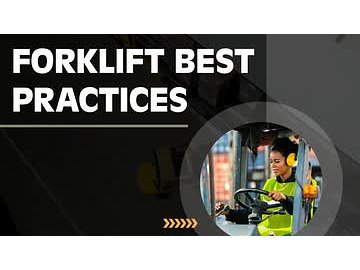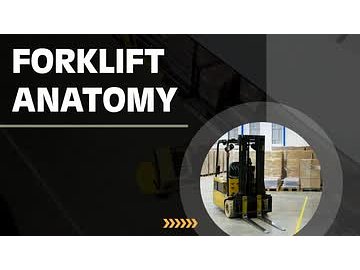Filter by
Sort
Sub-category
Training Bundles
- Artificial Intelligence
- California HR Essentials
- Cybersecurity Essentials
- Digital Transformation
- Diversity, Equity & Inclusion
- DOT/CDL
- Drug and Alcohol Compliance
- Financial Compliance
- First Aid
- Food Safety
- HIPAA Compliance
- HR Essentials
- Leadership
- Mental Health & Wellbeing
- OSHA / Construction Safety
- Personal Development
- Project Management
- Retail
- Workplace Harassment
- Workplace Safety
State
Language
Tags
Price
Duration
Audience
Online OSHA Compliance Forklift Training Courses
Courses

OSHA Compliance
Forklift Awareness (Chinese) 认识叉车 Course
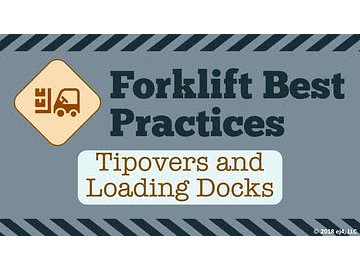
OSHA Compliance
Forklift Best Practices: Tipovers and Loading Docks
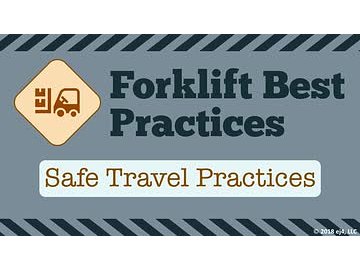
OSHA Compliance
Forklift Best Practices: Safe Travel Practices

OSHA Compliance
Forklift Operator Safety - Orientation

OSHA Compliance
Forklift Operator Awareness Part 1

OSHA Compliance
Forklift Safety: Introduction to Forklifts for Managers

OSHA Compliance
Forklift Best Practices: Ramps and Grades
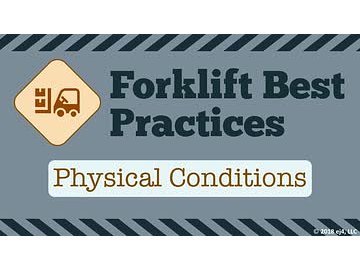
OSHA Compliance
Forklift Best Practices: Physical Conditions
About Forklift Training
If you’ve ever worked in a warehouse or on a construction site, you know the sound of a forklift before you even see it. The steady beep when it backs up, the hum of the engine, the rattle of a pallet being set down. Forklifts make the work possible — without them, moving heavy loads would take forever. But anyone who’s been around long enough has seen a close call: a driver turning too quickly, a load tipping forward, or a pallet stacked just a little too high. You watch, you hold your breath, and sometimes you’re lucky nothing worse happens.
That’s the heart of why Forklift Training matters. It’s not about paperwork or passing an inspection. It’s about making sure those “close calls” don’t turn into accidents that send someone home hurt.
Why Forklift Training Matters
Forklifts are powerful machines. They don’t forgive mistakes. One wrong move can damage thousands of dollars of product or, worse, injure someone standing nearby. And the ripple effects of an accident stretch beyond the warehouse floor. It means lost time, insurance claims, higher premiums, and sometimes even legal battles.
Training gives operators more than just the ability to drive — it gives them awareness. They learn how to identify risks, manage pressure, and make informed decisions during a busy shift. That confidence changes everything. Instead of rushing and hoping for the best, trained operators work steadily, safely, and reliably.
The Rules Everyone Has to Follow
There’s also the legal side of things. In the U.S., OSHA requires anyone who drives a forklift to be trained and certified. Those rules aren’t there to make life harder — they came from years of data showing just how many injuries and deaths forklifts have caused. Other countries have similar standards, and most industries enforce them tightly.
Skip the training, and the risks pile up quickly. A failed inspection, big fines, lawsuits, higher insurance rates — not to mention the damage to a company’s reputation. Workers notice when safety is treated as an afterthought, and once that trust is lost, it’s tough to regain it.
What Employers Need to Do
For employers, providing Forklift Training isn’t just the law — it’s part of being a responsible leader. That means providing workers with proper instruction, keeping their certifications up to date, and offering refresher courses when equipment changes or in the event of an incident.
But the bigger responsibility is cultural. If managers only push for speed and production numbers, workers will feel pressured to cut corners. If managers show that safety is just as important, employees take it seriously too. A culture that values training and safety ultimately results in fewer accidents, stronger teams, and better overall results.
What Employees Bring to the Table
For operators, Forklift Training is a starting point — not the finish line. Passing the course is one thing. Living it out every shift is another. Operators must stay alert, perform daily checks, maintain balanced loads, and never assume they can “wing it” because they’ve been driving for years.
Every person on that forklift is carrying more than just cargo — they’re carrying responsibility for themselves, their coworkers, and the business. Training puts the knowledge in their hands, but what matters most is how they apply it day-to-day.
Real Stories
A warehouse I worked with once rushed new holiday hires into forklifts without proper training. One guy clipped a support beam, and half the aisle had to be shut down. Thousands of dollars' worth of product was damaged, and OSHA arrived quickly afterward. The fine stung, but the loss of confidence among the team was even harder to recover from. People started asking, “Are we really safe here?”
On the other hand, I’ve seen companies that do it right. A manufacturing plant I visited incorporated Forklift Training into every onboarding session and scheduled short refresher sessions twice a year. Within a few years, their forklift accidents dropped by more than half. Insurance premiums went down. Workers felt more confident. The plant manager told me, “The training pays for itself. I sleep better at night knowing my team is covered.”
Best Practices That Actually Work
Training is most effective when it feels realistic. The most successful programs I’ve seen include:
-
Hands-on practice — not just sitting in a classroom. People need to get behind the wheel.
-
Short, regular refreshers — an hour every so often keeps safety fresh in everyone’s mind.
-
Mentorship — new operators paired with veterans who’ve seen it all.
-
Blended learning — a bit of online for theory, a lot of real driving for skill.
-
Celebrating wins — whether it’s accident-free months or inspection success, recognition goes a long way.
When training feels practical and connected to daily work, people respect it.
The Payoff of Certification
Forklift Training isn’t just about staying compliant. It’s an investment with clear returns. For businesses, this means fewer accidents, lower insurance costs, smoother audits, and a stronger reputation. For employees, it means a certification that can enhance careers, increase pay, and foster long-term confidence in their abilities.
The return on training shows up in safer workdays and more productive shifts — benefits that both employers and employees can see and feel.
Conclusion
Forklifts are the workhorses of warehouses, plants, and job sites. But they’re also heavy, unforgiving machines. Forklift Training is what makes the difference between risk and reliability.
For companies, it’s about protecting people, profits, and peace of mind. For workers, it’s about building confidence, advancing their careers, and making it home safely. Training is more than a rule — it’s a promise everyone on the floor shares.
Forklift Training FAQs
Why is Forklift Training important for businesses?
Forklift Training is important because heavy equipment accidents don’t give second chances. Whether it’s a rookie operator or someone with years of seat time, one wrong move can cause crushed loads, damaged property, or serious injuries. Without proper training, businesses face not only OSHA fines but also costly downtime and liability claims. The real value of Forklift Training is clear: it keeps operators safe, protects co-workers, and ensures smooth, compliant operations.
How often should Forklift Training be updated?
Forklift Training isn’t a one-and-done process. OSHA requires refresher training every three years, but companies should retrain sooner if an operator is involved in an accident, caught using unsafe practices, or assigned to a different type of truck. Even seasoned drivers can pick up bad habits over time. Regular updates keep safety sharp and help prevent routine tasks from turning into major incidents.
Are online Forklift Training programs effective?
Online Forklift Training can be effective as part of a blended program. Digital modules make it easy to cover theory—like load capacity or hazard awareness—on a flexible schedule. But real-world skills matter just as much. Driving a forklift, maneuvering in tight spaces, and stacking pallets safely require hands-on practice under supervision. Pairing online learning with in-person evaluation ensures operators are both knowledgeable and capable.
What happens if Forklift Training is ignored?
Ignoring Forklift Training can have devastating results. OSHA fines are one consequence, but the bigger risks are accidents that lead to serious injuries or fatalities. Untrained operators may tip over trucks, strike pedestrians, or damage racking systems—incidents that can shut down operations and destroy a company’s reputation. Skipping training puts both people and business assets on the line.
How can companies measure the success of Forklift Training?
The success of Forklift Training is seen in everyday operations. Safe habits like checking equipment before shifts, following floor markings, and maintaining proper speeds show the training stuck. Lower accident rates, fewer near-misses, and cleaner OSHA inspections are measurable signs, but the ultimate proof is when forklift safety becomes second nature and everyone on the floor trusts the operators to do their jobs correctly.



